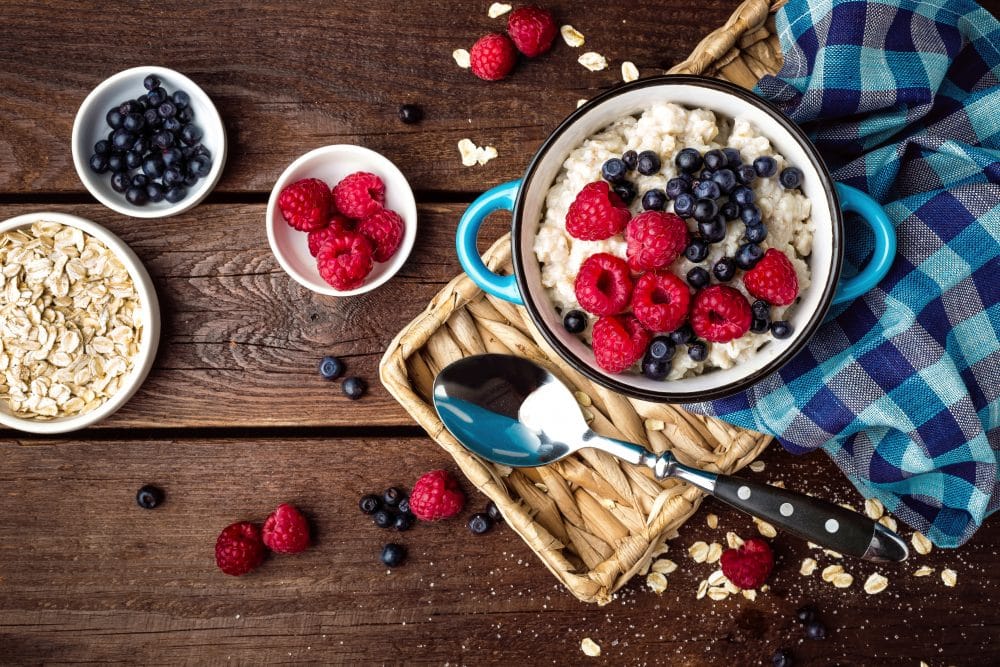
Simple, Healthy and Easy – Top Tips For A Balanced Diet Part 2
If you missed it, be sure to head to last week’s blog posts for the first installment of this posting before reading on!
Transitioning to a healthier diet can often seem overwhelming. However, starting out small will see you make great leaps in improvements to your health one step at a time.
Eating a healthy diet will:
- Improve overall health and wellness
- Reduce risk of chronic disease such as diabetes and cardiovascular disease
- Improve blood pressure, body fat, visceral fat and cholesterol
- Increase productivity and concentration
- Improve mental wellbeing
- Strengthen immune system
- Boost mood and sleep quality
- Decrease lethargy and fatigue
- Increase motivation and energy
1. Ditch ‘diet’ and faddy foods
Diet foods are often marketed in a way that makes them look as though they will provide you with all of the nutrition you need. However, foods that are stated to be ‘low-fat’, ‘fat-free’, ‘zero-sugar’ or ‘diet’ will often be lacking in flavour and have extra sugar, artificial sweeteners and preservatives pumped into them to compensate. You will be much better off opting for whole foods such as fruit and vegetables.
2. Choose fresh instead of dried
Dried fruit can be a useful snack from time to time, but opting for the fresh berry equivalent will mean that you can eat a lot more without consuming anywhere near the same levels of sugar. 100g of fresh or frozen berries contain approximately 35 calories, whilst 100g of dried fruit contain approximately 396 calories. Eating fresh of frozen will mean you will be more satisfied and not consume the same sugar rush.
3. Ditch added sugar
Added sugar leads to a greater increased risk of heart disease and diabetes. Ditching foods such as cake, biscuits and ice cream will stand you in good stead for the future. This doesn’t mean that you need to miss out, but simply get create in the kitchen. If you are someone who craves a sweet evening snack, replace your usual choice with some chopped banana with peanut butter, or freeze some Greek yoghurt before topping with unsweetened coconut and cinnamon.
4. Stay on track when eating out
When eating out, choose a meal that is based on fresh and whole ingredients, containing healthy fats and lean protein. Avoid fried options or dishes with cream-based sauces. Ask for your dressing or gravy to be on the side of your meal so you can control the amount you have. Avoid the breadbasket and order a side salad with your main course to give an even bigger nutritional boost to your health.
5. Opt for nutrient-dense food choices
If you opt for foods high in nutrition and low in calories, you are able to eat a considerable amount more and are therefore likely to feel fully satisfied and not tempted by a sugary snack. Foods high in nutrients include berries, eggs, peppers, seeds, sweet potatoes, salmon and broccoli. Opt for these foods over nutrient-poor convenience food options that are loaded with calories, sugar, salt and fat for much less food quantity.
6. Eat your calories instead of drinking them!
Sugar filled drinks such as alcohol and fizzy drinks can lead to weight gain, increased risk of chronic disease and tooth decay. Instead, consume your calories from food and ditch the liquid versions. For some added sweetness in your drinks, add some fresh fruit and herbs to ice cold water and leave to infuse.
7. Prioritise ingredients over calories
Calorie counting is unhelpful and potentially unhealthy. Some foods that are high in calories such as nuts, seeds and avocado are incredibly beneficial to your health. They are energy-dense, containing plenty of fibre and healthy fats that will help to keep you satisfied between meals. Basic healthy food ingredients such as these will help to promote a healthy relationship with food instead of an obsession with unhelpful calorie counting.
8. Eat enough omega-3 and vitamin D
A large percentage of people are lacking in both vitamin D and omega 3 fatty acids. They both have an important role within the body that includes reducing inflammation, maintaining heart health and promoting brain function. Foods rich in these sources include fresh fish, some dairy products, soymilk, beef liver and egg yolks, almond milk, mushrooms, nuts and seeds.
Catch the final part of this blog post for more simple, healthy and easy tips for a balanced diet!


